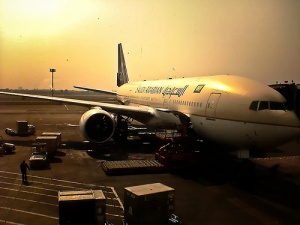IATA reports surprising increase in air passenger traffic

Figures from the International Air Transport Association (IATA) reveal passenger traffic was 5.6 per cent higher in September than a year earlier.
Air freight on the other hand posted a 2.7 per cent contraction for September compared to September 2010.
“September’s strength in passenger demand was a pleasant surprise,” said IATA director general Tony Tyler.
“Freight demand contracted for a fifth consecutive month and this trend is in line with falling business and consumer confidence.
“We are still expecting a general weakening in passenger traffic as we head towards the year-end.”
Despite stronger than expected growth in passenger markets during September, the industry is bracing for more difficult times ahead.
IATA’s recent Airline Business Confidence survey reported a significant decline in profitability expectations over the next 12 months.
More worrying is the expectation that unit costs will increase with little optimism for yields.
The majority expected no change in passenger yields while 90 per cent of respondents were split equally among those expecting cargo yields to remain the same or decline.
IATA is expecting profitability to decline from $6.9 billion in 2011 to $4.9 billion in 2012 for a margin of just 0.8 per cent.
“Airlines play a key role in connecting global business. At this time of economic uncertainty in many parts of the world, US plans to raise an additional $36 billion in aviation taxes over the next decade could not be more misguided,” added Tyler.
“Last month the UK recognised the harm that its £2.5 billion Air Passenger Duty was doing in Northern Ireland and announced a major cut.
“It is time to apply that lesson at a more global level.
“Increasing the cost of doing business by making air transport more expensive destroys competitiveness. Governments should protect the 33 million jobs and $3.5 trillion in economic activity supported by aviation with a sound policy framework—not by suffocating the industry with taxes,” concluded Tyler.

